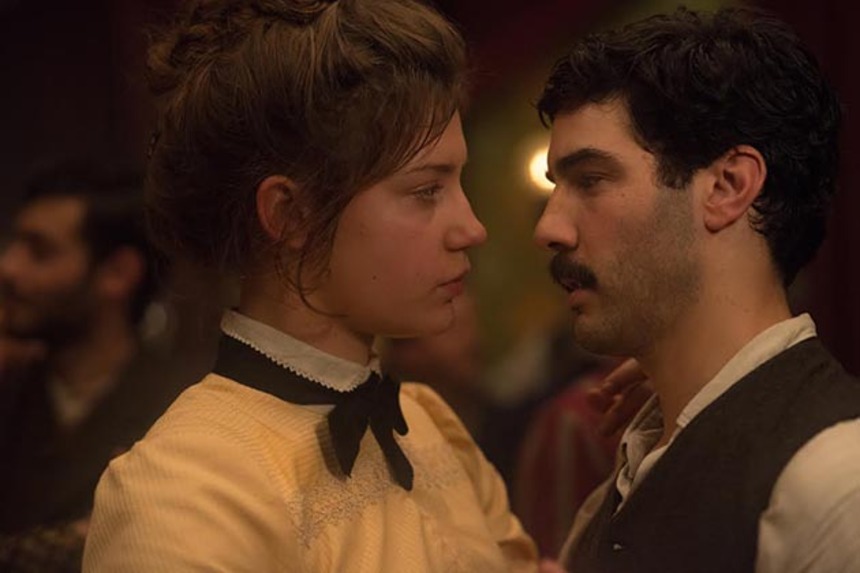Cannes 2015 Review: THE ANARCHISTS Cares Not For Your Bourgeois Cinematic Ideals

How do you say "awards-bait" in French? Take two of the hottest young stars in France, team them up with a rising star director, and then give them a period topic with obvious shades of hot button current events. The recipe is called Les Anarchistes (or The Anarchists). All things considered, the film lives up to its billing - but that includes trading what might have been a tightly wound plot for a very French sense of character.
Starring A Prophet's Tahar Rahim as Jean and Blue is the Warmest Color's Adele Exarchopoulos as Judith, Elie Wajeman's film is set in 1899 Paris. Jean is a regular issue policeman who gets plucked from the ranks for special assignment because of his sharp intellect and lack of connection to his own past. His task: infiltrate an Anarchist set taking root in Paris. His real challenge: avoid falling far the group's radical matriarch Judith whose doe eyes will make any man swoon.
While Jean succeeds wildly at the first task, the second challenge proves mostly impossible. The early infiltration scenes of Jean working at a slumland nail factory give the film a much needed sense of scope. But once Jean is inside, the rest of movie plays out in a series of dimly lit salons. This is great for building character as the anarchists argue over politics, tactics, and loyalties, but the tradeoff is a lacking sense of time and place.
We are all familiar with the "in too deep" scenario. But Wajeman eschews many conventions of the undercover drama by spending precious little time developing much of the plot around the anarchists. The action plays out like a heist film and the scenes are mostly enjoyable, but the disregard for proper plotting of events makes the film feel rather loosely wound.
Both Exarchopoulos and Rahim are excellent, but the love story is meekly developed. It's easy to believe that any guy would fall for Judith's commanding personality, but it would still have been nice to see a few more exchanges before the pair fell into bed (not to mention the thread with Judith's lover/Jean's pal which is barely addressed). Still the two actors take the little development they are given and manage to pull off a stunning chemistry.
In the end, that excellence in craft tends to paper over the story's weaknesses. It's no doubt that the looseness of plot and somewhat lazy character development are all conscious decisions by Wajeman. This is an extremely French film. Those willing to let go of conventions and enjoy the characters and performances will find plenty to love. But if you're expecting a tightly wound thriller or a history lesson on the Anarchist movement of the turn of the 20th century, then you should probably keep looking.







